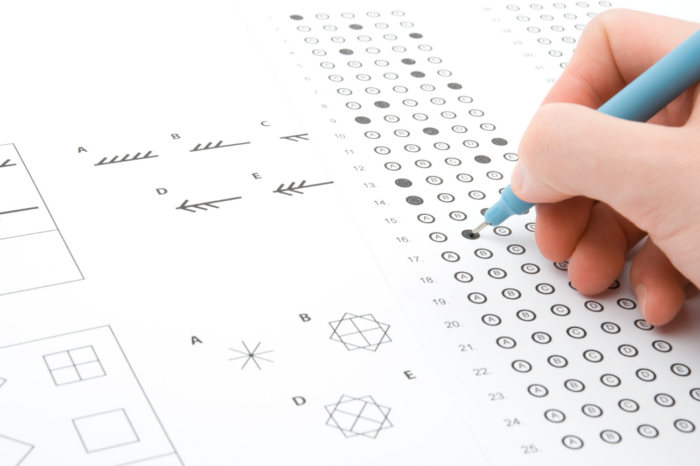IQ tests are often seen as a definitive measure of intelligence, but there are some things people commonly get wrong about them. In this article, we’ll explore some of the most common misconceptions about these tests and show you why they’re not actually indicative of intelligence. Armed with this information, you’ll be able to make more informed decisions when it comes to testing your own intelligence or that of your children.
What is IQ and what does it measure?
IQ is a measure of cognitive ability. It is often used to measure intelligence. These tests are designed to measure how well someone knows how to think and solve problems. You can do them online on sites like iq-online-test.com.

What People Often Get Wrong About Intelligence tests
What people don’t know is that there is more to intelligence than just raw IQ scores. In fact, many factors go into making someone smart, and these quizzes only measure a small part of it. So if you’re looking to boost your score, here are a few things you should avoid doing:
1) Studying for too long or in the wrong areas: One of the biggest mistakes people make when trying to raise their IQ is studying in the wrong area. Instead of focusing on IQ-boosting subjects such as math, science, and language, they should study subjects that will help them develop real-world skills. For example, someone who wants to become an engineer might study math and science but also learn about engineering principles so that they have a better understanding of how things work.
2) Trying to memorize information instead of understanding it: Another common mistake people make is trying to only remember information instead of understanding it. Memorizing facts and figures can help you get a high IQ score, but if you can’t understand what you’re memorizing, it won’t do you any good. Instead, focus on learning concepts and understanding them in depth. This will help you build a strong foundation that will help you learn new information more easily.
3) Not taking time for relaxation: One of the key factors that go into intelligence is mental stamina. If you don’t have enough energy or stamina, you won’t be able to focus on things and your IQ score will suffer as a result. Getting enough sleep and relaxing regularly will help you stay mentally alert and avoid feeling tired or stressed out.

There are many factors that can contribute to a person’s IQ score
Some things people often get wrong about IQ quizzes are that they assume all scores are the same and that intelligence is only binary (either you have it or you don’t). In reality, the scores can vary quite a bit, and intelligence can be more nuanced than that. Another misconception is that they measure some innate ability, like being smart or clever. In fact, they are designed to measure skills and abilities that can be improved with training.
IQ tests are not a reliable measure of intelligence
Many people believe that IQ exams are a good measure of intelligence, but this is not always the case. They are only good for measuring how well someone does on these types of quizzes, and they do not necessarily reflect intelligence and other important skills.
These tests are not a predictor of success in the future. The majority of people who have high IQs do not have successful careers, and it’s not a rule that the majority of people who have unsuccessful careers have lower IQs.

How to take an IQ test
Be sure to read the instructions carefully. They are not like regular exams where you can just pick a number and hope for the best. They are designed to measure your intelligence in a specific way. There is no one right way to take a test, but there are some common tips that will help you maximize your score.
First, make sure that you are at least 14 years old. IQ tests are designed to measure intelligence in adults, not children.
Second, try to relax and avoid thinking too hard during the test. They are not meant to be difficult; they are designed to measure your general cognitive ability. If you try to focus on the questions, you will likely miss some of the subtleties contained in the questions. Instead, focus on taking Notes and answering questions as quickly as possible. This will help you avoid making any mistakes and get a higher score on the test.
Third, do not rely solely on your memory when taking an IQ test. Many questions on intelligence quizzes ask you to think about problems or concepts that you have never seen before. If you can’t remember the answer to a question, try to look it up. This will help you improve your memory and score on the test.
Finally, do not be discouraged if you don’t get a high score on your first IQ test. Everyone is different, and the test may not measure your intelligence in the same way that other tests do. Try taking a different one or reviewing the tips above to see if they can help you improve your score.

How to improve your IQ score
If you want to improve your score, there are a few things you can do. First, find a test that is relevant to what you want to improve. For example, if you want to increase your math skills, take a math quiz. The more times you take the test, the better your chance of getting a higher score. Finally, practice the material you learned on the test. This will help you learn and remember the information better.
Conclusion
IQ tests are a valuable tool for assessing your intelligence, but they aren’t the be-all and end-all. There are a number of things people often get wrong about these tests, which can lead to them underestimating their own score or overestimating the score of someone else. Make sure you understand how they work before taking one so that you don’t fall victim to any of these common mistakes.
The post Things People Often Get Wrong About IQ Tests appeared first on FotoLog.
from FotoLog https://ift.tt/95JQZoM
via IFTTT



0 Comments